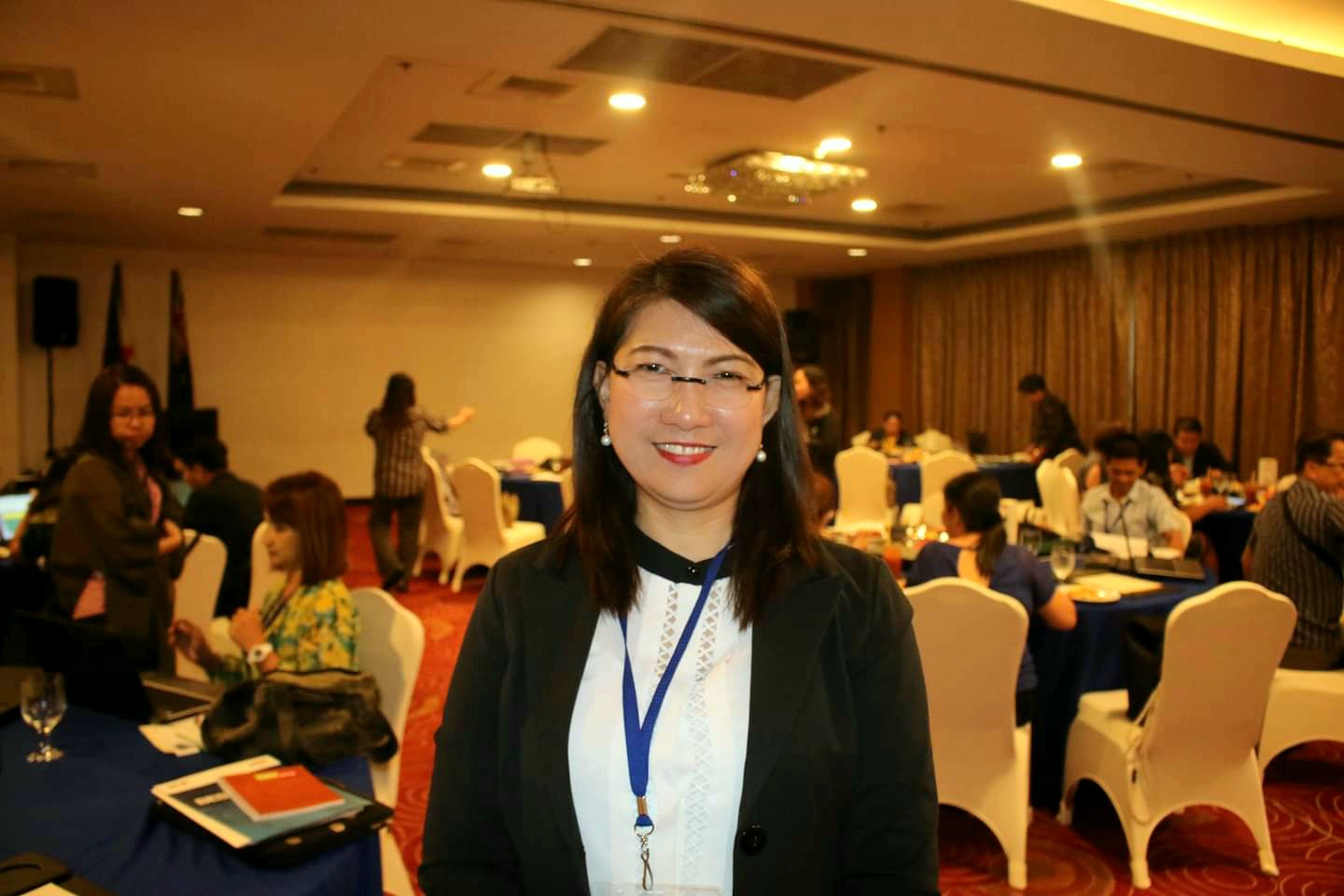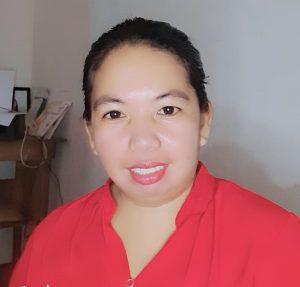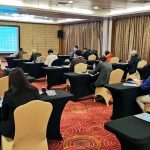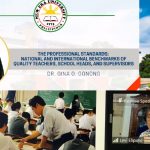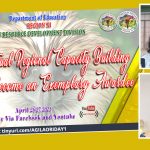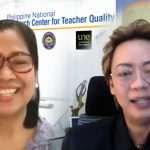Insights: How PPSSH and PPSS guide school leaders to perform better
Dr. Marilyn Siao and Ms. Marylou Argamosa—two school leaders who were part of the National Technical Working Groups for the Philippine Professional Standards for Supervisors (PPSS) and the Professional Standards for School Heads (PPSSH), respectively—share insights on how the two sets of standards guide supervisors and school heads perform their roles better.
Dr. Marilyn Siao
OIC-Schools Division Superintendent
Division of Catbalogan City, Samar
Unlike during my time, school heads and supervisors now are very fortunate to have a clear-cut picture of what they are expected to know, be able to do, and value along well-defined career stages of professional development continuum, which they need to gradually and meaningfully embed in their practice. The Philippine Professional Standards for School Heads (PPSSH) and the Philippine Professional Standards for Supervisors (PPSS) clearly articulate the professional practice/behavior expected of quality school heads and supervisors respectively. The two sets of professional standards provide the common language for high-impact leadership among school heads and supervisors across regions nationwide.
During my time as school head for almost nine years, I must admit that I struggled to demonstrate what I believed were expected of me as a school leader even though I topped the Principals Management Aptitude Test, and earned the Most Outstanding School Head award for few years. All those years, I was not able to exactly define the knowledge that I should have equipped myself with, things that I should have valued, and neither was I able to determine the scope of the numerous tasks that I should have done. I just happily welcomed the boundless accountabilities that came my way, strategized and set ways to address them.
I remember the first time that our school Maintenance and Other Operating Expenses (MOOE) was directly released under my name, where I wasn’t prepared for fiscal management competencies, I sought the help of a secondary school head who oriented and guided my team, including the schools in my cluster, until we had a formal training and learned the process on our own.
My promotion to the Education Program Supervisor position was actually attributed to, more than anything, my performance as a school head. I did not have any prior idea on what my deliverables were as a supervisor in the division office.
As part of the National Technical Working Group for the development of the PPSS, my personal experience as an Education Program Supervisor when Typhoon Yolanda devastated Region 8 in November 2013 made me push for the inclusion of “disaster preparedness, mitigation and resiliency support” as one of the strands of the PPSS. Supervisors are expected to provide support services to schools along this area during disasters and emergencies.
In hindsight, I really wished there were quality frameworks at that time which could have articulated the required quality professional practice expected of me as a school head and a supervisor. I could have prepared more properly before I assumed each position. My work could have been better guided by a developmental continuum of career stage expectations inherent in the PPSSH and the PPSS.
As an OIC-SDS now, the PPSSH and PPSS form parts of the realization of my aspirations for our education system. I am fulfilled having contributed in the enhancement of the school leadership landscape. I remain grateful to the BHROD, NEAP, and RCTQ for giving me this significant opportunity to serve the wider DepEd community by being part of the NTWG for the PPSS.
“In hindsight, I really wished there were quality frameworks at that time which could have articulated the required quality professional practice expected of me as a school head and a supervisor. I could have prepared more properly before I assumed each position. My work could have been better guided by a developmental continuum of career stage expectations inherent in the PPSSH and the PPSS.”
—Dr. Marilyn Siao, OIC-Schools Division Superintendent, Division of Catbalogan City, Samar
Ms. Marylou Argamosa
Principal I, Palapas Elementary School
Ligao City
I have spent 12 years as a classroom teacher. During those years, I have had four school heads who entrusted me with tasks and assignments that exposed me to school management and operations. Young as I was in the service, I already had fair understanding of how a school should operate and function as an organization. More often than not, I would observe the decisions and actions of our school leaders. At times, though, I could not help but wonder why a particular school head would do one thing while the other one would do another thing given similar circumstances.
I began seeking answers to my questions by discerning on what a school head should know, be able to do and value. The National Competency Based Standards for School Heads (NCBSSH) was there to guide me, although when I studied it, I got overwhelmed by the indicators which I found too many for me to accomplish.
In 2017, after taking the Principals’ Test, I accepted the challenge of being assigned as a school head of a small elementary school while, at the same time, serving as Head Teacher III at a secondary school. Although I gained a new working environment and a fresher perspective, it was harder than I expected. I thought I was already equipped with the needed competencies to manage a school. Since I was a secondary school teacher, I had to learn the content of the curriculum and the teaching pedagogies in the elementary for me to be able to provide technical assistance to the teachers during instructional supervision. The school also had a very different context from my previous station. It only had seven teachers and one utility worker funded by the local government unit. There was no finance personnel to manage our meager MOOE. At times, only one teacher was left in school as others were attending trainings or seminars and meetings. There were a lot of challenges, but instead of giving up, I chose to be creative and resourceful.
I moved to my present school in July 2018. Just after four months, my involvement in the development of the Philippine Professional Standards for School Heads (PPSSH) started.
I was amazed by how my participation in crafting the PPSSH–which I expected to make managing the school more difficult since it divided my time–equipped and empowered me instead to become a more effective, proactive, and dynamic 21st Century school leader. I was given the opportunity to experience the process of formative research. I also learned the importance of data-based/evidence-based decision making, that any initiative in the school must be grounded on authentic data and evidence. Most importantly, working with brilliant people in the RCTQ, BHROD, and NEAP was a very enriching and inspiring learning experience that transformed my qualities and character as a school head.
After we finished developing the PPSSH, I gained a comprehensive understanding of my role as a school head. I am now certain of the things that I should know, be able to do and value in order to succeed in my work. I became more confident that I can do my job well because I am guided by the school heads standards. Even during this time of pandemic when there are many challenges we face in my school, I am able to lead and manage the school with grace since I know what to do and how to do it. In fact, with the 5 domains of the PPSSH, Domain 5 which is “Building Connections” guided me in the implementation of Brigada Eskwela 2020 in our school amidst the threat of Covid-19 virus. Our school has been recently adjudged as 1st place in the BE Best Implementer (Elementary Level) in our division.
Like many contemporary school heads, I feel lucky that I have started my journey as school head with the PPSSH. It gave me an advantage and an assurance that I will be able to perform a well-guided school leadership and management.
“I gained a comprehensive understanding of my role as a school head. I am now certain of the things that I should know, be able to do and value in order to succeed in my work. I became more confident that I can do my job well because I am guided by the school heads standards. Even during this time of pandemic when there are many challenges we face in my school, I am able to lead and manage the school with grace since I know what to do and how to do it. In fact, with the 5 domains of the PPSSH, Domain 5 which is “Building Connections” guided me in the implementation of Brigada Eskwela 2020 in our school amidst the threat of Covid-19 virus. Our school has been recently adjudged as 1st place in the Brigada Eskwela Best Implementer (Elementary Level) in our division.”
—Ms. Marylou Argamosa, Principal I, Palapas Elementary School, Ligao City
https://www.rctq.ph/?p=2360https://www.rctq.ph/wp-content/uploads/2017/02/2021-02-PPSS-H-insights-1024x557.jpghttps://www.rctq.ph/wp-content/uploads/2017/02/2021-02-PPSS-H-insights-150x150.jpgFeaturePPSS,PPSSH



